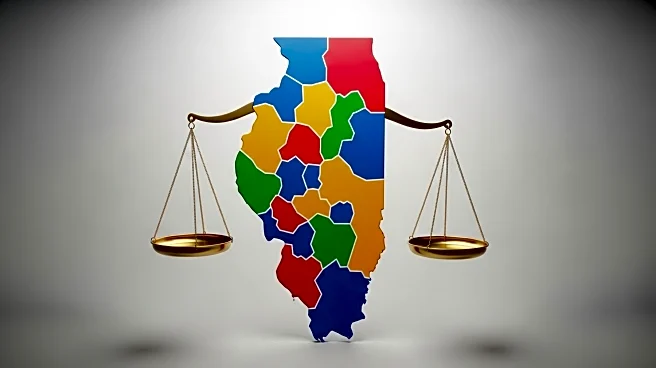What is the story about?
What's Happening?
The Chicago Tribune editorial board has highlighted the issue of gerrymandering in Illinois, where legislative maps have favored one party for two decades. The editorial suggests a novel approach to address this issue by allowing each party to draw its own map based on the percentage of statewide votes received. This proposal aims to ensure that every village, township, and county has representation from both major parties, thereby increasing voter engagement and competition. The editorial also discusses the broader implications of gerrymandering across the United States, noting that both Democratic and Republican governors have contributed to the pension crisis in Illinois, and calls for a nationwide nonpartisan redistricting plan.
Why It's Important?
Gerrymandering has significant implications for democratic representation and governance. By skewing legislative maps, it can entrench political power and reduce electoral competitiveness, leading to voter disenfranchisement. The proposed competitive party representation model could enhance voter engagement and ensure fair representation, potentially serving as a model for other states grappling with similar issues. The editorial underscores the need for systemic reform to address gerrymandering nationwide, which could impact the balance of power in the U.S. House of Representatives and influence national policy decisions.
What's Next?
The debate over gerrymandering in Illinois and other states is likely to continue, with potential legal challenges and calls for reform. Stakeholders, including political leaders and civil society groups, may push for legislative changes or ballot initiatives to implement nonpartisan redistricting. The outcome of these efforts could influence future elections and the political landscape in Illinois and beyond.
Beyond the Headlines
The issue of gerrymandering raises ethical questions about the manipulation of electoral boundaries for political gain. It also highlights the cultural dynamics of changing neighborhoods and the historical shifts in demographic representation. Addressing gerrymandering could lead to long-term shifts in political engagement and governance, fostering a more equitable and representative democracy.















